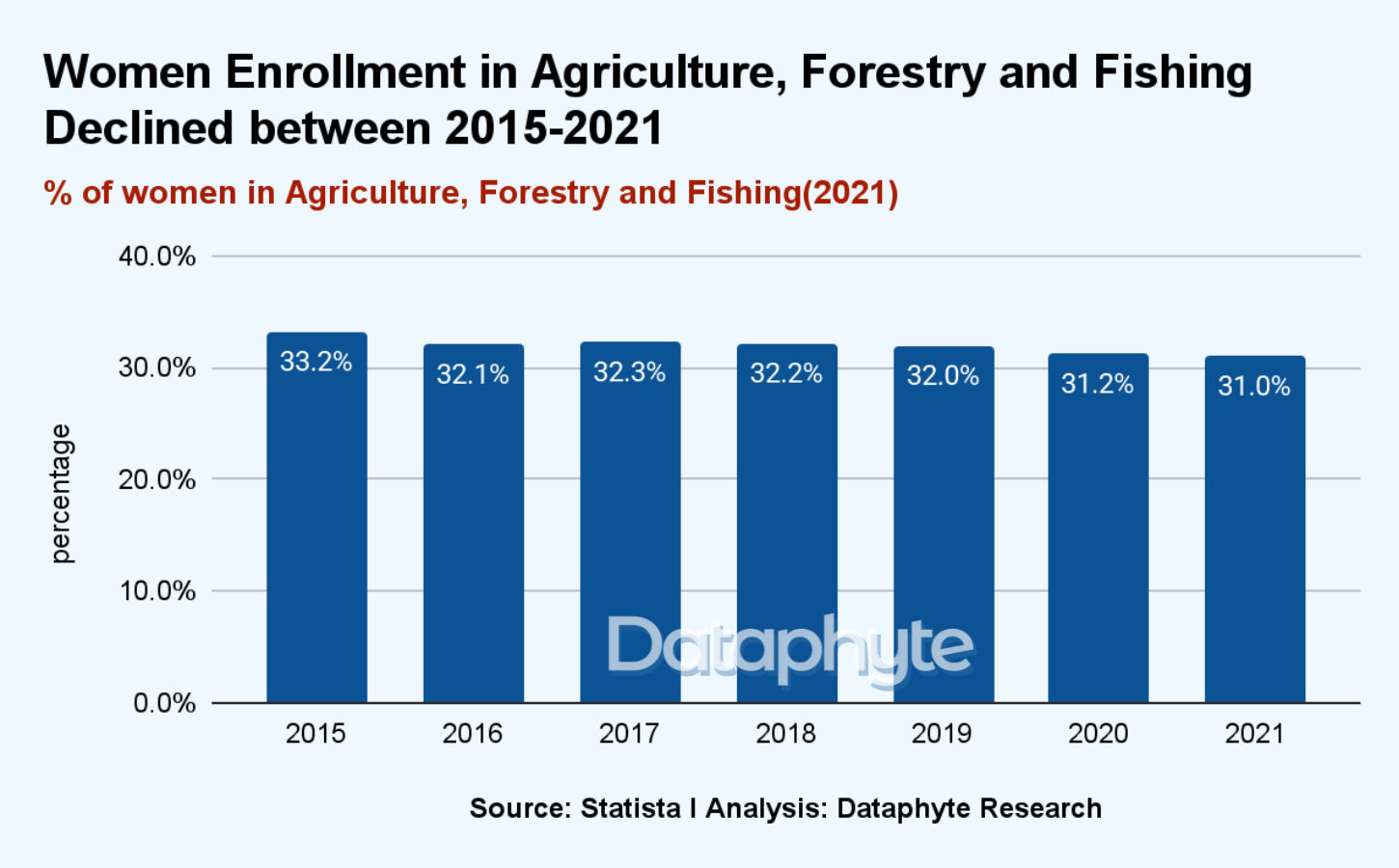Climate change has gained global attention due to its serious impacts. It causes more frequent and extreme weather events, such as hurricanes, droughts, and heavy rainfall, which have severe consequences.
Gender inequality coupled with the climate crisis is one of the greatest challenges for developing nations like Nigeria. It threatens ways of life, livelihoods, health, safety and security, especially for women and girls around the world.
Women get involved in many activities such as agriculture, fishing and farming activities to make ends meet. In Nigeria, about 21.1% of the women are either in agriculture, fishing or farming.
Agriculture is a sector that is particularly sensitive to the impacts of climate change. Changes in heat and humidity can affect the health and productivity of animals raised for meat, milk, and eggs. Additionally, climate change influences soil and water resources, and it raises health concerns for livestock in agriculture.
Women in this category have been faced with different challenges from climate change which has posed a barrier for their vision and businesses to thrive.
For instance, Dataphyte’s research on how climate change affects the fishing business revealed that the main factors affecting people in the fish-farming business in Ogun state include extreme climatic conditions, floods, water pollution, lack of adequate technology, and lack of loans and grants. These pose major challenges for the business to thrive.
Between 2015 and 2021, women's participation in Agriculture, Forestry and Fishing declined due to recurring threats from climate change. Rising temperatures, heavy rainfall, intense storms, and extended droughts are all direct impacts of climate change that farmers worldwide are experiencing.
This effect has broader impacts on trade flows, food markets and price stability and could introduce new risks for human health. Many crops suffer as a result of these severe weather conditions. This impacts the farmers and the food they produce, which, in turn, hurts the security of global food supply.
Although the links between climate change and sustainable development are strong. Poor and developing countries, particularly least developed countries, will be among those most adversely affected and least able to cope with the anticipated shocks to their social, economic and natural systems.
Solutions to Reduce The Climate Burden
Climate change is a significant issue that threatens the global ecosystem and disproportionately affects women. According to UN Women, various economic, social, and cultural factors exacerbate climate change's impact on women's health, livelihoods, and safety.
The United Nations emphasizes the importance of integrating women’s priorities and needs in development planning and funding to address the effects of climate change on women. Investments in adaptation, mitigation, technology transfer, and capacity-building programs must also prioritize gender equality.
Also, the body through its strategic plan aims to achieve the Sustainable Development Goals. The plan details how UN Women will catalyse urgent and sustained action to achieve gender equality and the empowerment of all women and girls.
The United Nations Children's Fund (UNICEF) suggested ways to overcome structural gender inequalities and barriers to climate-resilient development.
Recommendations provided were inclusive and gender-responsive social protection and how agrifood systems can provide access to resources, services, and economic opportunities for women and girls to build their resilience in the face of climate change.
The United Nations Climate Change News says women make up nearly half of the agricultural labour force in developing countries. It hereby recommends that when women are provided with the same access to resources as men, women can increase their agricultural yields by 20 to 30 per cent.
‘‘This boost in productivity not only improves total agricultural output by 2.5 to 4 per cent, but it can also help reduce world hunger by 12 to 17 per cent, according to the UN.’’
Also, empowering women in agriculture can have a positive impact on climate adaptation. By providing appropriate technology and resources, it can promote more sustainable farming and conservation practices.
By reducing poverty, we can help individuals better adapt to the effects of climate change.
Thanks for reading this edition of SenorRita. It was written by Kafilat Taiwo and edited by Joachim MacEbong.






